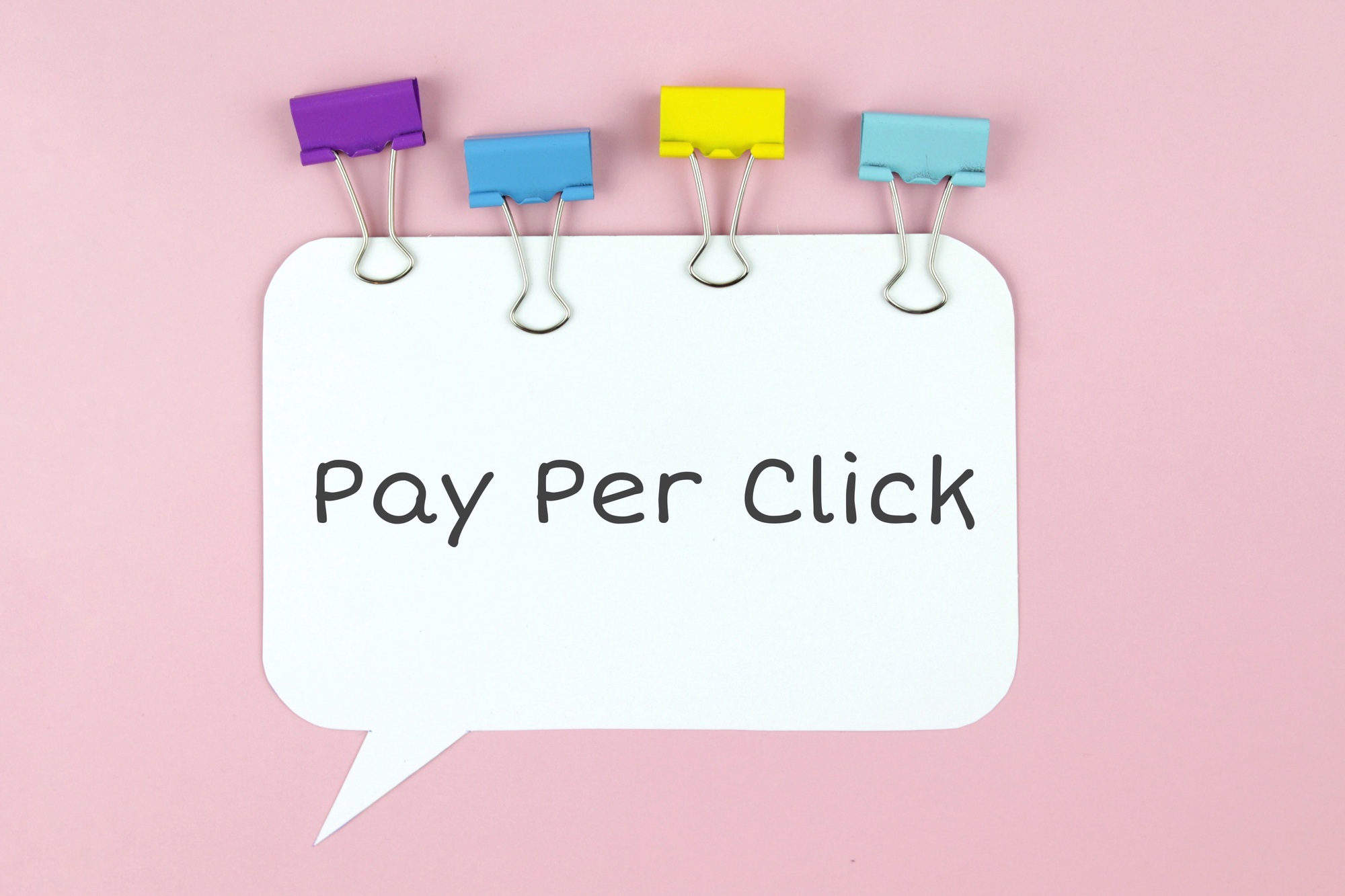Key Takeaways

- Cost-Effective Targeting: PPC advertising is a budget-friendly method, allowing businesses to pay only for the clicks they receive, ensuring efficient spending on marketing efforts.
- Immediate Visibility: Unlike organic search strategies, PPC campaigns can generate instant traffic to your website, providing quicker results and enhancing your brand’s online presence.
- Customizable Campaigns: Advertisers can tailor PPC campaigns to specific demographics, locations, and user behaviors, maximizing reach to audiences actively seeking their products or services.
- Ad Format Variety: PPC includes different ad types such as search ads, display ads, and social media ads, each serving unique marketing goals and enhancing engagement with potential customers.
- Challenges in Competition and Budget: High competition for keywords can drive up costs, making effective budget management and strategic keyword selection vital for achieving strong ROI.
- Implement Best Practices: To optimize PPC performance, focus on thorough keyword research, compelling ad copy, and continuous A/B testing to refine your campaigns and improve click-through rates.
In today’s digital landscape, standing out from the competition can feel overwhelming. Pay per click (PPC) advertising offers a powerful solution to drive targeted traffic to your website. With the right strategy, you can maximize your visibility and attract potential customers who are actively searching for your products or services.
PPC allows you to only pay for the clicks you receive, making it a cost-effective way to reach your audience. Whether you’re a small business or a large enterprise, understanding the ins and outs of PPC can help you boost your online presence and achieve your marketing goals. Let’s explore how you can leverage this dynamic advertising model to elevate your brand and increase conversions.
Overview of Pay Per Click Advertising

Pay per click (PPC) advertising represents a strategic digital marketing method where advertisers pay only for clicks on their ads. This model offers an efficient way to generate targeted traffic for your website.
Definition and Concept
PPC involves placing ads on search engines or social media platforms. Advertisers bid on specific keywords that potential customers use. Each time a user clicks on your ad, you incur a cost, hence the term “pay per click.” Campaigns can be customized based on budget and objectives, allowing you to control spending effectively.
Importance in Digital Marketing
PPC advertising is crucial in digital marketing, particularly for small businesses. It provides immediate visibility, often outperforming organic search efforts in terms of speed and efficiency. Targeted ads direct prospective customers to your offerings, enhancing lead generation and conversion rates. Investing in PPC helps optimize your marketing budget by focusing on users actively seeking products or services similar to yours.
Types of Pay Per Click Advertising

PPC advertising encompasses various types, each serving specific marketing goals. Understanding these types can help small businesses leverage their budgets effectively.
Search Ads
Search ads represent the most prevalent form of PPC advertising. You encounter these ads prominently at the top or bottom of Search Engine Results Pages (SERPs) when entering relevant keywords or phrases on search engines like Google. These text-based ads can incorporate extensions, such as site links, call buttons, or location information, enhancing visibility and engagement. Search ads effectively target users actively seeking products or services aligned with your offerings, making them ideal for driving qualified traffic to your site.
Display Ads
Display ads focus on visual appeal and appear across websites, apps, and other digital platforms within a display network. You can utilize display ads to increase brand awareness and reach potential customers as they browse online. These ads can be images, banners, or rich media, designed to attract attention and encourage clicks. Integrating display ads into your overall marketing mix can enhance your audience’s perception of your small business and bolster your brand presence.
Social Media Ads
Social media ads leverage popular platforms like Facebook, Instagram, and Twitter to engage users. These ads, often visually driven, enable you to target specific demographics based on interests and behaviors. Social media ads allow for enhanced interaction and immediate feedback, making it easier for your small business to connect with potential customers. Utilizing these ads can generate significant engagement and drive traffic to your website, complementing your PPC strategy effectively.
Benefits of Pay Per Click Advertising

Pay Per Click (PPC) advertising offers many advantages for small businesses aiming to improve their marketing strategies. Understanding these benefits can enhance your online presence and drive effective traffic to your website.
Immediate Results
PPC advertising delivers immediate results. Ads begin driving traffic almost as soon as they go live, unlike SEO efforts that require time to build visibility. With this rapid deployment, you can quickly assess the effectiveness of different promotions or offerings, ensuring resources are allocated efficiently. Ads appear prominently at the top and bottom of search engine results pages, granting your business instant visibility.
Targeted Audience Reach
PPC advertising allows you to reach a highly targeted audience. You can customize your ads based on specific demographics, locations, and user behaviors. This precise targeting ensures your marketing efforts focus on individuals most likely to engage with your products or services. For small businesses, this method maximizes marketing effectiveness by connecting with potential customers actively searching for relevant solutions.
Challenges in Pay Per Click Advertising

PPC advertising presents several challenges that can impact small business marketing effectiveness. Understanding these obstacles allows you to create more strategic campaigns.
High Competition
Rising competition poses a significant challenge in PPC advertising. As many businesses invest in PPC, the battle for high-performing keywords intensifies. This increase in competition results in higher Cost-Per-Click (CPC) rates. Your budget may drain quickly, diminishing the chances of achieving strong Return on Investment (ROI). Utilize niche targeting by focusing on long-tail keywords. For instance, bid on “affordable digital marketing agency for startups” instead of competing for generic terms such as “digital marketing agency.” This strategy can reduce competition and lower CPC, helping your small business maintain budget control.
Budget Management
Effective budget management remains crucial for successful PPC campaigns. Control costs by setting daily or monthly limits to prevent overspending. Allocate funds to the highest-performing ads and analyze metrics like click-through rates (CTR) and conversion rates to inform budget shifts. By consistently monitoring your PPC campaigns, you can optimize expenditure and maximize the impact of your marketing budget. Establishing a clear budget strategy enhances the potential for better ROI in your small business PPC efforts.
Best Practices for Effective Pay Per Click Advertising

Effective pay per click (PPC) advertising requires a strategic approach to maximize your marketing efforts. Implementing best practices can improve your results and enhance visibility for your small business.
Keyword Selection
- Research and Select Relevant Keywords: A successful PPC campaign starts with thorough keyword research. Identify keywords relevant to your small business, focusing on options with reasonable competition. Long-tail keywords often provide more targeted traffic and lower costs.
- Acquire, Refine, and Organize Keywords: Scan your website’s landing pages to harvest relevant keywords. Utilize tools to refine and organize these keywords, ensuring they align with your products or services. Identify negative keywords to avoid irrelevant searches, improving overall campaign efficiency.
- Analyze Keyword Metrics: Consider the monthly search volume and cost per click (CPC) of your keywords. Opt for high-volume keywords for greater exposure while remaining aware of increased competition. Keywords with higher CPCs can drive effective traffic but may raise costs for your small business.
Ad Copy Optimization
- Craft Compelling Headlines: Your ad’s headline must capture attention quickly. Use concise language that conveys value or urgency, prompting users to click.
- Incorporate Target Keywords: Include selected keywords within your ad copy to ensure relevance to users’ searches. This alignment improves ad performance and boosts Quality Score.
- Utilize Clear Calls to Action: Encourage specific actions, such as “Shop Now” or “Learn More,” to guide potential customers. Strong calls to action enhance the likelihood of click-throughs and conversions.
- A/B Test Ad Variations: Run A/B tests with different headlines and copy to determine what resonates best with your audience. Continuously refine your ads based on performance data to enhance effectiveness.
By focusing on these best practices, you’ll optimize your PPC advertising efforts, driving targeted traffic to your small business and maximizing your marketing budget.
Conclusion

Embracing pay per click advertising can be a game changer for your business. By leveraging its targeted approach you can connect with potential customers actively searching for your products or services. The immediate results and budget control make PPC a smart investment for businesses of all sizes.
As you navigate the complexities of PPC remember to focus on strategic keyword selection and compelling ad copy. With careful monitoring and optimization you can maximize your return on investment. Don’t shy away from experimenting with different ad types and targeting strategies to find what resonates best with your audience.
With the right approach PPC advertising can drive significant traffic and enhance your online presence. Start implementing these strategies today to see tangible results in your marketing efforts.
Frequently Asked Questions

What is PPC advertising?
PPC, or pay-per-click advertising, is a digital marketing strategy where advertisers pay for each click on their ads. This method allows businesses to promote their products or services on search engines and social media platforms by bidding on relevant keywords.
How does PPC benefit small businesses?
PPC offers small businesses immediate visibility and results. Ads can start driving traffic almost instantly, allowing for quick assessments of promotional effectiveness and targeted audience reach based on demographics and user behaviors.
What types of PPC ads are available?
PPC ads come in various forms, including search ads, display ads, and social media ads. Search ads appear in search engine results, display ads focus on visual appeal, and social media ads target specific demographics on social platforms.
https://www.youtube.com/watch?v=oQw8pn-xgZY
How can I control my PPC budget?
Effective budget management in PPC involves setting daily or monthly spending limits, allocating funds to high-performing ads, and regularly monitoring campaign metrics. This approach helps businesses maintain control over their advertising costs.
What are long-tail keywords in PPC?
Long-tail keywords are longer, more specific phrases that potential customers might use in search queries. Focusing on these keywords helps businesses target niche audiences and often leads to lower competition and cost-per-click rates.
Why is keyword research important in PPC?
Keyword research is crucial because it identifies relevant terms that potential customers are searching for. Utilizing well-researched keywords can enhance ad visibility, improve click-through rates, and drive targeted traffic to a website.
What are the best practices for creating effective PPC ads?
Best practices include conducting thorough keyword research, crafting compelling ad copy, and incorporating clear calls to action. A/B testing different ad variations also helps refine messaging based on performance data.
How do I measure the effectiveness of my PPC campaigns?
Effectiveness can be measured through key performance indicators (KPIs) like click-through rates, conversion rates, and return on investment (ROI). Regularly analyzing these metrics helps optimize campaigns for better results.
What challenges do small businesses face with PPC?
Small businesses often face high competition for keywords, leading to increased costs. To address this, they should consider niche targeting strategies, focus on long-tail keywords, and continuously monitor their ad performance for optimization.
https://www.youtube.com/watch?v=a-JmhK9nKJk
Image Via Envato: mohdizzuanbinroslan, seventyfourimages, Mehaniq41, ijeab, thichas, insta_photos, nenetus, margaritaylita



